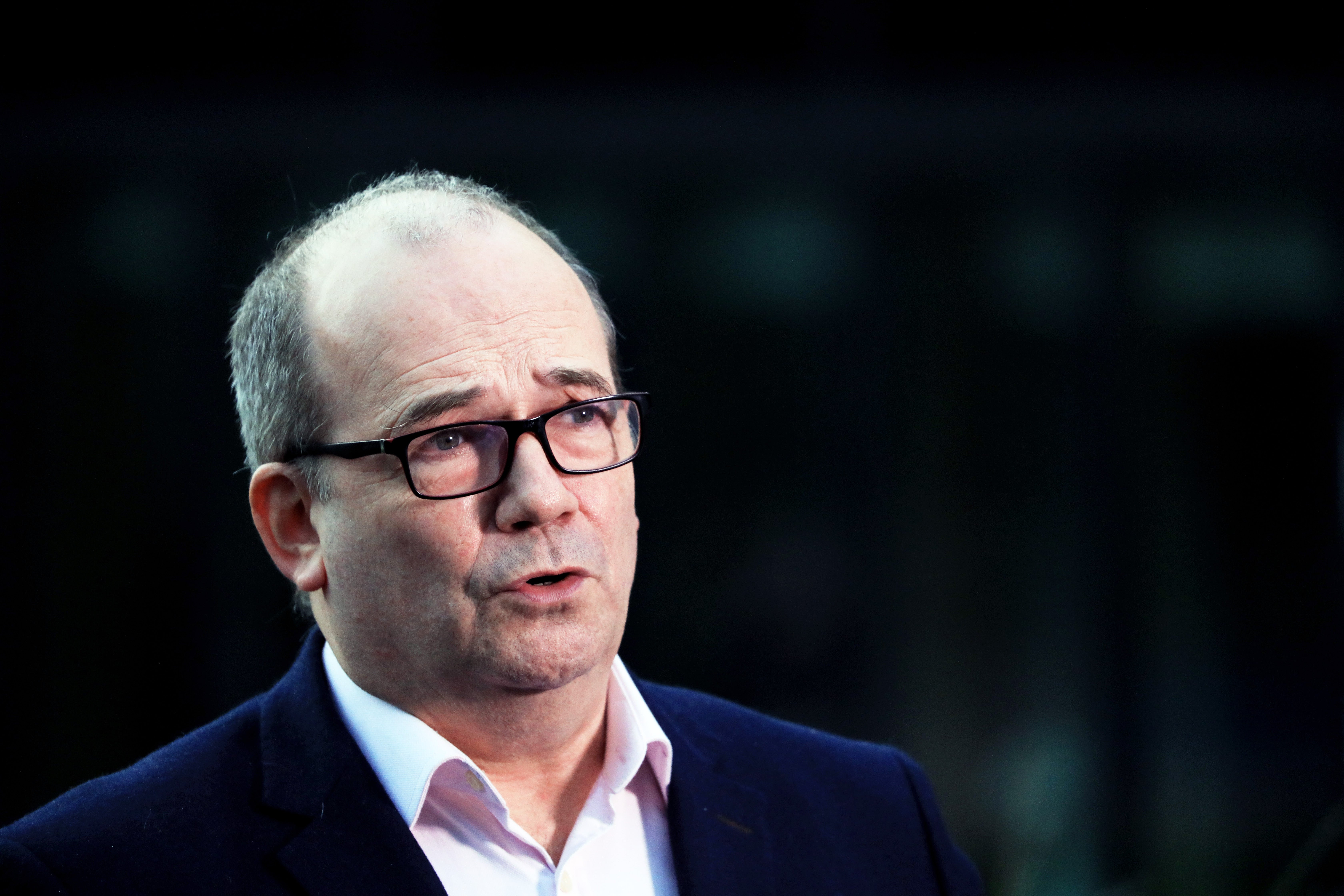Omicron unlikely to be last Covid-19 variant, ‘but immune systems will win’
Northern Ireland’s chief medical officer emphasised the importance of everyone taking up the vaccination and booster jab.

Your support helps us to tell the story
From reproductive rights to climate change to Big Tech, The Independent is on the ground when the story is developing. Whether it's investigating the financials of Elon Musk's pro-Trump PAC or producing our latest documentary, 'The A Word', which shines a light on the American women fighting for reproductive rights, we know how important it is to parse out the facts from the messaging.
At such a critical moment in US history, we need reporters on the ground. Your donation allows us to keep sending journalists to speak to both sides of the story.
The Independent is trusted by Americans across the entire political spectrum. And unlike many other quality news outlets, we choose not to lock Americans out of our reporting and analysis with paywalls. We believe quality journalism should be available to everyone, paid for by those who can afford it.
Your support makes all the difference.Omicron is unlikely to be the last variant of Covid-19 to emerge, but human immune systems will win, Northern Ireland’s chief medical officer has said.
Sir Michael McBride said the vaccination programme, particularly the booster jab, will tip the balance.
The death of six patients who had previously tested positive for the virus and another 2,706 cases were notified in the region on Monday.
Hospitals remained under pressure – with 387 Covid-positive patients in hospital, of whom 31 were in intensive care.
Sir Michael said the region is set to reach the peak of the Omicron wave in the next couple of weeks.
He urged the taking up of vaccination.
“Variants will always arise,” he told the PA news agency.
“This is not the last variant that we have seen, there will be variants after Omicron, we have still, unfortunately, more letters in the Greek alphabet which we will use as those become detected, but what we can say is that increasingly our immune system is in a much better place, our immune system wins in the end and it wins particularly when we tip the balance in its favour and that means all of us getting the vaccine, all of us getting our booster vaccine.
“What we have seen time and time again – even though the pressure is on the virus to mutate, to become more transmissible, to escape from the vaccines – time and time again, we have seen the vaccines that we have still offer very good protection against severe disease and hospitalisation, and that’s important.”
Sir Michael said there had been a huge surge of people coming forward for vaccination, but there has been a significant slowdown since Christmas Eve.
He said getting all the jabs meant you are 90% more likely to avoid severe disease and require hospital admission.
“We have seen that right across the United Kingdom as people deferred getting their booster jab over the holiday period, but now we’re back, holidays are behind us, it’s really important that people don’t rely on two jabs to give them protection,” he said.
“We now know that three jabs are necessary to protect against severe disease, including reducing the risk of hospitalisation, so don’t sit at home and worry about Covid and Omicron – if you’ve your first dose, your second dose, the best thing you can do to keep you out of hospital is to get your booster dose.”
Earlier, Sir Michael said case numbers will “increasingly become a less reliable indicator” of how extensive the epidemic in this wave is.
“We’ve seen a significant change in testing behaviour, we’ve brought about some changes in our testing strategy with removing the requirements for confirmatory PCR tests, but it’s really important that people still report their positive lateral flow tests because that’s important for contact tracing,” he told BBC Radio Ulster’s Good Morning Ulster programme.
“I think the true peak we’re likely to see in the next couple of weeks, the next one-two weeks.
“I think the numbers will be much higher than we’re actually reporting and are much higher than we’re currently reporting.
“It’s important to bear in mind that hospital pressures continue to increase and we will see pressures there peak towards the latter end of January and into early February.
“There is a long and difficult time ahead for our health service and we can all play our part by getting our vaccine, getting our booster and protecting the health service.”
Asked about Northern Ireland having the worst infection rate in the UK, Sir Michael said comparing regions is complicated, pointing out that there is more testing in Northern Ireland than the rest of the UK.
“We’re testing more people in Northern Ireland than any other part of the UK, we have done for some time… we’re testing more people in Northern Ireland compared to the Republic of Ireland and clearly the more people you test, the more cases you detect – because obviously a third of cases are asymptomatic,” he said.
Some 58,000 new cases of the virus have been reported in Northern Ireland since the start of 2022 – more than the total for the first six months of 2021.